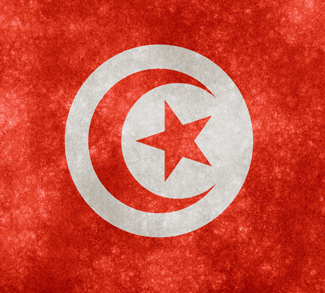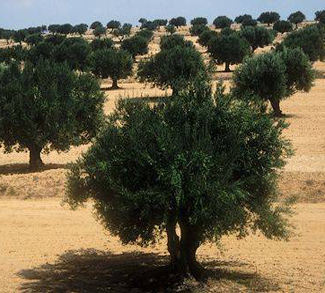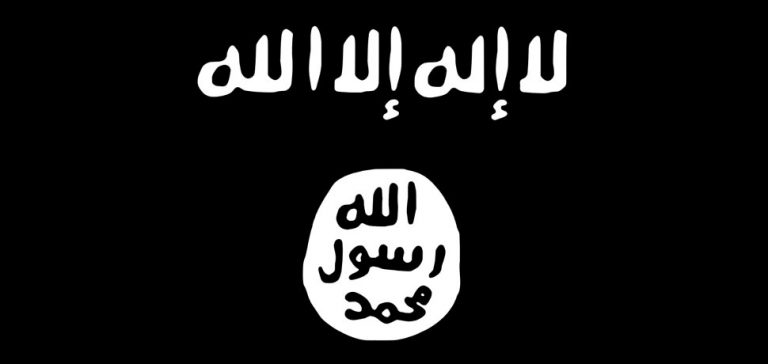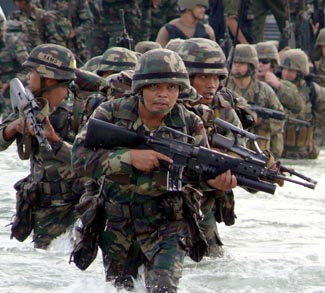There has been a tendency lately to blame all terrorism in North Africa and the Middle East on Islamic State, ignoring socio-economic phenomena at the local level. IS has become a convenient catch-all explanation, just as al-Qaida was in the first decade of the 2000s. The recent attacks that left tens of British tourists killed in Sousse, Tunisia last June 26 is but the latest episode. In fact, by ignoring Tunisia’s internal conditions, little is accomplished in containing the problem of terrorism inspired by radical Islam. The focus on al-Qaida and IS or any other such group is useful in generating headlines, and helps to construct the monster in the style of a 007 movie villain. The problem is that Islam serves more as the tool of discontent than the goal, even if the respective leaders of al-Qaida and IS profess the goal of Islamizing society. Islamic State has such a goal clearly stated in its name. But the anger, the conditions that prompt young men, and women, to join such groups are borne locally and often the violence to which they sometimes resort is a form of imitation, even as it speaks of local challenges.
The attack in Sousse “will only do further damage to an industry that had not yet fully recovered from the events of 2011.” The Sousse shooting, the second major attack in months, has dealt a heavy blow to confidence, which will discourage capital inflows as it will tourism. Cancellations are coming faster than tour operators can process and the tourism sector appears to be heading for a total collapse. The problem is that Tunisia, which has been in economic crisis for years, desperately needs capital and the cancellations are only going to make terror and violence more likely. The United Kingdom, Finland, Denmark and Ireland have advised their citizens not to travel to Tunisia. And on top of that, even Tunisian tourists with weekend reservations have canceled. This shows the extent of panic and fear prevailing in Tunisia, crushing tourism, which has already suffered in recent years the effects of post-revolution political instability.
There have been suggestions that the terror attacks in Sousse and against the Bardo museum last March, allegedly claimed by Islamic State – or at least inspired by it – were somehow a response to Tunisia’s successful democratic transition. Doubtless, IS as much as any other group or individual devoted to the propagation of a harsh ideology finds an enemy in democracy, but it also finds fuel in instability. Just as was the case for oil and gas before the collapse of the Qadhafi regime, Libya has also served as the main exporter of instability to its neighbors, democratic or otherwise, serving as a source for weapons that have crossed its borders to find combatants in Niger, Mali, Egypt, Algeria and Tunisia. Tunisians have also filled the ranks of IS and other fighters in the Syrian war more than any other nationality by percentage of population. Tunisia is therefore very vulnerable and the attack that killed almost 40 tourists in Sousse has the same goal as the one against the Bardo museum in Tunis: to destroy the tourism sector and the Tunisian economy.
Tourism accounts for at least 6% of Tunisia’s GDP and the terrorists have ensured that rather than devote more resources to economic growth, Tunisia will now have to divert them to security in order to confront the threat. Sousse had recently benefited from a plan to improve security, to ensure a trouble-free tourist season. The hotel that was targeted by the killers happened to be one of the most frequented by Western tourists, who were already less evident along Tunisia’s shores, as the Bardo attack has already prompted a drastic drop in foreign visitors compared to a year ago. Tunisia has almost an impossible challenge ahead in attracting visitors and their valuable foreign currency. The European economic crisis has hurt investment in Tunisia and this was one of the main causes of the so-called ‘spring’ of 2011. Secular protests failed to bring in change, also because the EU was unable or unwilling to intervene to help stimulate the nascent democracy in the North African country with an economic lifeline.
Islamic State in Tunisia
As for IS, there is no doubt that Tunisia represents an ideal target. It is one of the most secular Arab countries, close to Europe geographically and culturally. But just how much of a threat is Islamic State in Tunisia? Does IS, borne out of the flawed social reintegration under the Shiite-dominated government in Baghdad after a disastrous US war, finding fertile ground in the Syrian civil war, really have a solid grasp in North Africa? Even if Islamic State is spreading, it professes a particular ideology, and understanding local conditions and socio-economic mechanisms can only add to understand it. Ultimately, such an approach will make efforts to fight IS more effective. So far, the West’s main, and apparently only, response has been to fight IS militarily, either by deploying and facilitating attacks against its positions and through tougher legislation aimed at increasing security at the expense of personal liberty and privacy. This approach has an obvious flaw. It is not possible to challenge an ideology with guns, rather you must eradicate the social roots that lie beneath its rise.
One of Tunisia’s highest ranking military officers, retired Chief of Staff General Rashid Ammar, said that Islamic State did not perpetrate the attack at the Imperial Marhaba hotel in Sousse. The general, no friend of Islamic radicals, told a Tunisian newspaper that one of the perpetrators, who was captured alive, revealed a much more local radicalization and organization process. Islamic State has devoted much attention to Tunisia, attracting many fighters to Syria, without actually having deep roots in the country. Kairouan in Tunisia’s interior, not far from Sidi Bouzeid, where the self-immolation of a disgruntled street vendor sparked the revolt that has come to be known as the Arab Spring, is the main focus of radicalization in Tunisia. Accordingly, Tunisia’s Prime Minister Habib Essid has ordered the closure of 80 mosques that have been spreading radical ideas, inspiring some to stage attacks against soft targets. The collapse of Libya and the porosity of its borders has contributed to the problem, as weapons have proliferated freely and easily since 2011. The presence of a democratic civil society and inclusive institutions remains the best antidote to the spread of religious extremism but Tunisia cannot prevent or combat the phenomenon of jihadism alone.
There is a need for cooperation between Europe and Tunisia; not on Islamic State, but rather on how both sides of the Mediterranean should coordinate on issues such as economy, immigration, and terrorism by virtue of their historical and geographical proximity. Tunisia must also attract foreign investment while creating the conditions to attract investments by domestic entrepreneurs to help spread wealth and offer young people hope for a better future. The situation is made more complex because of social media, which fueled the protests that brought down the government of Ben Ali in January 2011, allowing young people to see what life is like in other countries, raising their expectations. Their government, however, cannot provide answers and give them the prospects they seek. IS has manage to attract some of these recruits with the promise of money – Islamic State is a money-making organization it should be remembered – while anger finds its outlet in violence at the local level. Tunisia, bordered to the east by Libya, has not been sufficiently helped by EU countries, the very same which were partners during the Ben Ali period and friends during the difficult transition to democracy. If Europe wants more security, it must help Tunisia to recover from the economic crisis and the EU must commit to include projects that concern Tunisia in its plans to boost investment in the country. But, of course, the EU is going through its own existential crisis with the issue of Greece and austerity.
The importance of distinguishing Islamic State attacks from others became evident after a bombing in Cairo against the Italian consulate. After proclamations of Islamic State’s responsibility, a more careful analysis showed that the explosive used was identical to that used to kill Egyptian chief prosecutor Hisham Barakat in Cairo on June 29. The target was not Italy and the perpetrators were more than likely aiming for Judge Ahmed al Fuddaly, another prosecutor who has focused on the banned Muslim Brotherhood. The attribution of responsibility for attacks in Middle East and North Africa is a risky exercise because of the confusion created as terrorist organizations like IS take ownership of actions by individuals or isolated groups and vice versa. Islamic radicalism or not, the facts count. Many outlawed Muslim Brotherhood members in Egypt have found refuge and help in Libya, taking up a more combative Islam there than that practiced by the Brotherhood in Egypt. The ground was and is conducive to the repressed Islamists in Cairo, who are eager to avenge their comrades killed or imprisoned, and ready to practice a violent jihadism. A similar process is also taking place for Tunisia. Surely, terrorism arises from a distorted interpretation of the Koran, but, in Tunisia, the drop in tourism, by 3.2% last year, has caused unemployment to rise to some 31 percent. Foreign investments decreased by 5% in 2014.
The main perpetrator of the Sousse attack followed a predictable path to radicalization. Seif Rezgui, was like any of the hundreds of students that go to Kairouan, and despite claims of IS involvement, it is safer to suggest that it was an IS-inspired bombing. And this is an important distinction because, the efforts to blame attacks on IS somehow shifts responsibility for the violence elsewhere while ignoring the very domestic radicalization process. For Tunisia to resolve the problem and restore tourism and confidence it must tackle the actual causes of terror. Yes, Rezgui is said to have chatted about al-Qaeda an then Islamic State — he even wrote that on his Facebook page; however, the role of Kairouan, an ancient Islamic center and home to the oldest mosque in North Africa, 60km from Sousse, has a symbolic resonance for radical groups. The city offers students opportunities to study and work, drawing thousands from Tunisia’s impoverished and marginalized interior such as the 23-year-old Rezgui, himself who came from the town of Gaffour. Most of the thousands who come to the city move to its crowded outskirts, where dozens of mosques deemed by the government “outside state control” have been suspected for spreading radical ideology – long before IS or even al-Qaida.
In response to the Sousse attack, the government in Tunis has shut down 80 unregistered mosques around the country, out of an estimated 300. But analysts say the move will anger non-radical Islamists and is probably irrelevant, given that militants are more likely to network through the internet and via personal relationships. Ultimately, IS and the mosque help to radicalize ideas that stem from wider social problems such as unemployment and discrimination against those from poorer regions and those with darker skin. Islamists feed on these divisions. Tunisia’s poor neighborhoods have served as the supply line for the jihadis. Moreover, just as students in the 1970s in Egypt when the Muslim Brotherhood was gaining strength – eventually staging the murder of President Sadat – many students complain they cannot challenge a well-funded and powerful Islamist student union, of which they say Rezgui was a member. The group offers poorer students money for housing, food and even mobile phone credit. Islamists can spread their ideology along with their bread, just as the Brotherhood has done and just as many narcotics traffickers do in Latin America to win support from villagers. Before IS was on everybody’s lips and keyboards, in 2012, Salafist flags were being waved in Tunisia and especially in Kairouan. Some jihadis have made it to Sousse and some mosques have been raided by authorities. It doesn’t matter which mosques are closed, more will be found. The government and the West cannot hope to challenge Islamists, IS or otherwise, with drones and targeting mosques. They must challenge them in the social fabric, using the same socio-economic tactics.
The path to Islamist militancy is more complicated than that of developing radical views. Rezgui’s case shows how the line between what is considered normal youth behavior and radicalism become blurred. Rezgui was using drugs, which is forbidden in Islam. He has posted on social media about his love for the Real Madrid soccer team and break dancing while also writing on his Facebook picture: “If being a mujahid [holy warrior] is a crime, then I am a criminal.” Locals said Rezgui worked in Sousse as an entertainment organizer, perhaps sowing the seeds of envy and possibly lust from observing the lives of foreign tourists, who could enjoy the best of his country, dressed provocatively and flashing money around. Another problem is how Ennahda’s rise was handled in the aftermath of the 2011 revolt. Many secular Tunisians have attributed the Muslim Brotherhood’s affiliated party for the rise of radicalism. Ennahda actually won the first election after authoritarian ruler Ben Ali was overthrown in 2011 but they secularists ignored it and there was no dialogue between the two very entrenched sides.
To avoid ‘infection,’ Tunis plans to build a wall along the border, but this solution is merely a band-aid that cannot prevent local radicalization unless more structural solutions are adopted. Tunisia’s government, formed by liberals and moderate Islamists, has already adopted additional security measures to restore confidence but European fears, such as the British government’s advice to its citizens to avoid Tunisia as a destination, will not help either. Hundreds of arrests, fundamentalist mosques closed, emigration prohibited to young people suspected of wanting to achieve the caliphate in the valley of the Tigris and Euphrates, these efforts will continue but they remain a mere patch-up job.




